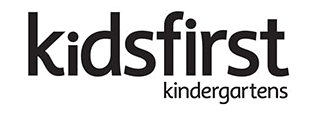
Help! My child won't let me leave
Most parents know that sinking feeling when a kindergarten drop off doesn’t go well.
No matter how many times we hear that our child was fine just minutes after we left, or how bubbling with excitement they are when we pick them up, just getting through those challenging morning moments can be an ordeal.
Kindergarten teachers see kindy drop-off difficulties on a regular basis, and while teachers empathise with how tough it can be for children, parents and whānau, they also know that most tamariki quickly settle down.
Head Teacher, Ceridwyn Dimmick has been teaching at Kidsfirst Hokitika for over 30 years. Over the years, she has experienced many hundreds of young children come and go, and has become adept at helping newbies and their whānau settle in.
“We don’t have a big problem here with children being worried when parents leave, but we’ve been pretty lucky that lots of adults have taken the time to settle their children."
"I think time is a big thing. I always say to parents, ‘If you can, please take the time to stay. And if you want to ring us, just do it, or we’ll ring you and you can always come back.”
Anyone who has ever lived in a small town knows that it can feel stifling at times, but Ceridwyn says Hokitika’s size can actually be helpful.
“It’s a small community. We know their brothers and sisters and cousins, so we can talk about familiar people,” Ceridwyn says. “We’ll find out what their interests are, too, from conversations with parents and information they give us when their children enrol.”
Parents are asked to complete a Getting To Know You form when children start. While it can feel like just another piece of paperwork, it’s an important way for the teaching team to get to know tamariki.
“It covers things like pet and sibling names, interests and abilities. It really helps children if we can talk with them about their home life and things that are familiar.”
Whether a child will have trouble settling or not is a very individual thing.
“I think it depends on the child, really. When we have discussions with the parents, we try to get a picture of what the child is like and where the support might be needed for them with transitioning.”
Ceridwyn says the attitudes of parents and caregivers sets the tone for how children will manage without them.
“A positive, cheerful attitude can help a child be less worried. Sometimes, it’s the anxiety of the parent that lands on the child and then the child gets uptight. It helps if parents stay positive and cheerful and talk positively about kindergarten, so the children don’t get the sense that the parents are anxious.”
Ceridwyn says children do best when parents are understanding, but clear, firm and confident about where they are going and when they will be back.
“I always say to parents, remind your child that it’s okay to feel afraid that you are leaving, but give them a reason why you have to go.
"For example, ’I need to go to the supermarket to get such and such for dinner’. And I always encourage them to give a timeframe. Tell your child when you’re going to go and how long you’re going to be, and stick to that timeframe. It’s good to start with a shorter time, maybe ten minutes, and gradually increase it.”
For children having an especially hard time with separations, a visible sign that mum or dad will be back can help keep the sense of connection.
“Sometimes I suggest that parents leave something behind so we can say ‘Mum will be coming back because she needs to pick this up’. Also, the car park is very visible, so we say to parents to leave the car and just go for a walk for 10-15 minutes and we can tell the children ‘look mum’s coming back, because the car is still here’. Usually, by the time mum or dad have gone they settle very quickly.”
The first kindergarten drop off might be the very first time that the parents or caregivers have left their child with anyone other than a well known friend or relative, and building trust between the child, whānau and the teaching team takes time. Once tamariki feel more comfortable with their teachers, anxiety over separation naturally starts to wane.
“Trust is a big thing. The child has to be able to trust us and, you know, the parent has to be able to trust us and feel comfortable with the teachers, too. Relationships are really important, and they need to be built.”
Ceridwyn and her team ask whānau and caregivers to come before their child’s official start date to stay and play for a while.
“That way they can get used to us while mum or dad or another adult they know is there with them. They have the opportunity to help build a relationship with us and with other children so their child is more comfortable when they start. That’s really useful in helping children settle.”
Spending time at the kindergarten also helps parents become familiar with routines.
“I think they find it easier to settle if they’ve done that rather than if they come straight in on the day and just find themselves left with us,” Ceridwyn says.
We all like to feel that someone has our back, and Ceridwyn says having the new children buddy-up with an older child is a great way for them to feel more secure in their new surroundings.
“An older child is really familiar with the routines and can help the new ones on their first day. Often, a friendship develops, and the older child will take the younger one home for a playdate, or something like that.”
For a small number of children, a sense of not being settled persists.
“If your child doesn’t settle, discuss with the teachers what you would like to happen,” says West Coast Kidsfirst teacher, Jo Woods. “It can be a very emotional time for everyone involved. Teachers are very experienced in supporting children and families through a difficult separation period and towards and building important new relationships”.
Kidsfirst’s small class sizes and emphasis on each child’s individuality make it possible to design a specific plan that meets the needs of a child and their family.
“This could be a meeting with teachers and adults to discuss how to support the child differently,” Ms Woods says. “Sometimes this may include getting advice from another agency, or whānau sharing of any new or relevant family and child information that could help. Our teaching teams have seen it all, and are extremely empathetic and compassionate about the inevitable events that can impact families and children.”
Kaiko (teacher) Wisdom:
kindy drop offs
• Keep to the same routine each day.
Say hello to the teachers, hang up their bag, get involved in play alongside your child.
• Be consistent
When it’s time to leave, leave. Don’t double back or be talked into staying.
• Seeing is believing.
Ask a teacher to accompany your child to the gate to say goodbye that way they can watch you leave.
• Remember, some anxiety is normal.
Most children will go through a stage of being anxious at partings. It doesn’t go on forever.
• Time is of the essence
Don’t rush your child. Make the time to ease the transition.
• Chillaxed parents - chillaxed child
Children take their cues from adults. If you know kindergarten is a safe place so will they.
• Teachers have seen it all before
Be reassured that teachers deal with countless goodbyes. Your child is in safe hands.
• Reassurance
Tell your child it’s ok for them to miss you. Then remind them of all the fun to be had at kindy.
• Ups and downs
One day they’re ok to leave you the next they’re not. That’s pretty standard. School holidays or other changes in their lives can often rekindle separation concerns.
• Make a plan
Your Head Teacher can help make a plan, tailored to your child, to ease the transition.
Teacher Profile:
Ceridwyn DimmickCeridwyn has been with kidsfirst for over 30 years, working both at Hokitika and Greymouth kindergartens. “I’m a fourth generation West Coaster, and have lived here all my life. I love the wonderful environments, both inside and outside that Kidsfirst provides for the tamariki’s learning.

I want to give tamariki a rich, early learning experience, which can be the foundation for their future learning. I am also an avid rugby fan, and support both the Crusaders and the All Blacks.”
JOIN OUR WHĀNAU





